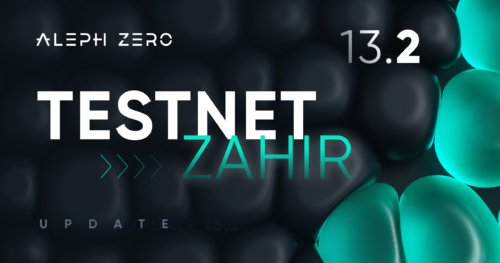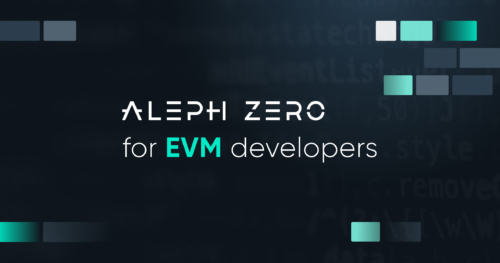Blockchain Deployment in Emerging Economies
Aug 23, 2021

It comes as a great surprise that emerging economies have the highest potential for adopting blockchains’ disruptive potential to the highest degree.
We have all been told countless times that blockchain technology is nothing short of a revolution. The last time a technological development has captured the public’s imagination to such a degree was when Spielberg brought the term Artificial Intelligence into the mainstream. This means that we can forgive one for assuming that blockchain will impact most significantly countries with robust economies and relatively affluent populations. Nothing is further from the truth, and the reasons for this we will explore in this article. Deploying blockchain in emerging economies is an incredibly promising field. With half of the world’s population now having access to the internet, this is a huge opportunity to implement novel technological solutions that can benefit countless lives.
Why Emerging Economies?
There are a number of reasons why emerging economies are in many ways at the forefront of blockchain adoption. One of the reasons why blockchain technology is seeing such spectacular growth in developing countries is because it gives these countries and their citizens the opportunity to leapfrog over legacy IT systems used in developed countries. Setting up these legacy systems is a costly endeavor. When we consider the predictions that even in more technologically advanced nations many of the solutions blockchain offers will dethrone our current solutions it makes sense to invest effort into the more novel technological solution. Time shouldn’t be wasted on the technological novelties of yesteryear.
Institutions Have Historically Neglected Developing Countries
Another reason blockchain technology is such a valuable innovation in emerging economies is the fact that these countries have historically been underserved by traditional institutions. In countries where institutional trust is undermined or nonexistent, blockchain consensus protocols can step in and provide a cryptographically secure and cost-effective way of facilitating information. Transferring value is also streamlined because the need for rent-seeking intermediaries is removed. This ties in with the technology’s trustless nature. This aspect of the technology can mitigate the high costs of personal intermediation that often result in opportunities for corruption, bureaucratic bloat, and human error. These negative practices are often the result of information asymmetries. To quote Tarun Khanna, professor at the Harvard Business School, “information needs to be: reliable, easily accessible, credible, and reproducible.”
Blockchain technology can also assist developing countries by replacing paperwork and overhead with automated processes. Smart contracts cannot be falsified to the same degree as more traditional, analog alternatives. An example of blockchain technology facilitating trade in developing countries is the use case presented by the Inter-American Development Bank. This organization is developing a blockchain-based project that will validate economic operators trading between Costa Rica, Mexico, and Peru.
Fighting Fraud
Another initiative spearheaded by the United Nations Centre for Trade Facilitation and Electronic Business is creating a standard for designing cross-border blockchain-based ledgers to exchange certificates of origin. Furthermore, we can apply smart contract protocols to tangential financial use cases such as tax collection. The technology can permit countries to efficiently enforce tax policies and also simplify the process for citizens. Also, through the use of smart contracts, we can curb fraud and other white-collar crimes committed via VAT payments.
Brazil is one such country that has pioneered blockchain-based tax solutions, primarily through its introduction of the bCPH system. This system shares data from the Registry of Taxpayers between tax and regulatory bodies at every level of the government. Another innovation pioneered in South America is the adoption of BConnect. This is a blockchain created by the Mercosur countries to streamline customs in Brazil, Argentina, Paraguay, and Uruguay. The system introduces solutions that guarantee the legitimacy of customs data shared between Mercosur countries.
Property Rights Can Be Hard to Verify & Trace
One of the main problems facing developing nations is corruption or outdated systems that lead to unfair or legally ambiguous forms of land ownership. This is a frequent occurrence at both the local and national levels. The lack of regulatory policies that effectively organize property ownership is a challenge that needs addressing in order to allow entrepreneurship and social cohesion to flourish. In Africa, 90% of rural land ownership is undocumented. In India, landlessness is a higher predictor of poverty than illiteracy or caste membership. Possessing a property is the most effective way to own collateral that permits people to access conventional banking systems. This situation is all the more tragic because in many instances the property occupied by these people sits on the land that that same family has occupied for generations.
The lack of effective property rights laws resulted in a detrimental yet widespread practice where fabricated land titles are issued to government officials or their associates through corrupt practices. This, of course, leads to evictions and deepens the vicious cycle of poverty. Oftentimes, citizens of developing countries may not have access to official land records (due to the lack of governmental transparency) or may find conflicting records regarding the ownership of their land. Situations such as these limit their ability to find recourse through legal proceedings.
Cleaning House
Distributed ledger technology can bring some order to these matters by introducing a register that allows anyone to easily verify ownership rights and trace a property’s full chain of custody. All it takes is an internet connection to access these registries and benefit from their transparent yet immutable nature. Some countries like Ghana have already established pilot programs to explore this highly promising avenue. The US-based company Bitland has started to collaborate with Ghanese officials to implement their land registration program. Unsurprisingly, the program is smartphone-friendly, which is a must in developing countries, where affordable, internet-connected mobile phones are prevalent even in most remote areas. Bitland records property transactions securely and accompanying data such as written descriptions, GPS coordinates, and photographs.
Another company pioneering blockchain land registries in emerging economies is Bitfury. In cooperation with the Georgian government, they have created a system that significantly reduces paperwork. The system also improves the transparency and speed associated with registering property rights.
Blockchain Enables Convenient Means of Storing and Transferring Value
Many emerging economies are notorious for their volatile monetary policies. The surging demand for cryptocurrencies in countries like Venezuela and Lebanon is a testament to their citizen’s distrust in their own central governments. This is due to the perception that cryptocurrencies are a hedge against inflation and because cryptocurrencies present themselves as an attractive investment opportunity. This is especially true for societies in which more traditional investment opportunities (such as the stock market) suffer from societal and governmental instability. The decentralized nature of purchasing cryptocurrencies is also an advantage of the space. Possessing the required phone application is all that one needs and cuts out brokers and banks as middlemen. Africa has a growing market for cryptocurrencies, with over 1.4 million people investing in the space. The rapid adoption of cryptocurrencies in Africa is also due to the presence of a young, tech-savvy populace.
Blockchain also has the potential to reshape cross-border remittances, which are notoriously slow and fee-ridden in their current form. In 2018, remittances to developing countries totaled over $528 billion. This significant sum surpasses three times the amount of money issued by official entities in development aid. This has resulted in cryptocurrencies and the blockchain technology associated with them stepping in. In a world where money transfers still suffer from outdated processes and high transaction costs, the mass adoption of smartphones and the discovery of virtual cryptocurrency wallets allow for a new, more economical avenue of transferring money. Adopting blockchain technology to regulate the remittance economy will essentially redefine the notion of cross-border payments and the rules that centralized bureaucracies have instilled in them. Some companies pioneering this space include Abra, BItSpark, and BitPesa.
Blockchain and Humanitarian Applications
Another area where blockchain technology can dramatically benefit emerging economies is by streamlining aid issued to those countries. Current systems used for distributing help to refugees and poverty-stricken communities suffer from corruption, misallocation of resources, and inefficiency. There is a use case for blockchain technology to assist in this field as well. Many initiatives have popped up that have contributed to a more transparent allocation of funds in this sector. An example of this is the South African blockchain start-up Bankymoon which created a program to allow donors to pay in bitcoins for the electricity consumed by South African schools. The money sent avoids all middlemen and goes directly to the schools.
The United Nations World Food Program (WFP) is another example of employing blockchain technology to benefit the less fortunate. The program called Building Blocks helps make cash transfers to refugees more transparent. It also allows monitoring food distribution to those who need it most. The WFP has set up grocery stores in refugee camps in Jordan in which refugees can purchase food. The stores are run through blockchain technology and receive payment through iris scans. This replaces vouchers that are easy to lose or damage. The program will eventually expand to allow refugees greater freedom in managing their funds in venues outside the camps. This innovation allows the UN to access areas struck by tragedy at a quicker pace. A faster reaction time helps bring society to a sense of normalcy quicker when traditional economic systems undergo disruption.
What Will the Future Hold?
The blockchain space is developing at a rapid pace and has found fertile ground in emerging economies. While developing countries continue to face myriad challenges, their relative lack of traditional governmental or financial institutions has made them more open to adopting Web 3.0 solutions, given the distributed, ground-up nature of next-generation internet applications and services. What is necessary at this stage is more cooperation between the private sector and governmental bodies. Blockchain technology’s disruptive potential can affect developing countries both economically and within a broader societal context. The technology will also contribute to governmental and legal progress.
The potential of these “leapfrog economies” should not be underestimated. They have multiple incentives to readily push for technological progress. These countries are not stifled by a tangled web of legacy infrastructure. Every country has its own unique challenges and opportunities, but we believe blockchain technology’s potential to enable localized use cases. These applications can accelerate progress across multiple environments and have the potential to reverberate far beyond the crypto community, impacting the lives of countless people worldwide.


